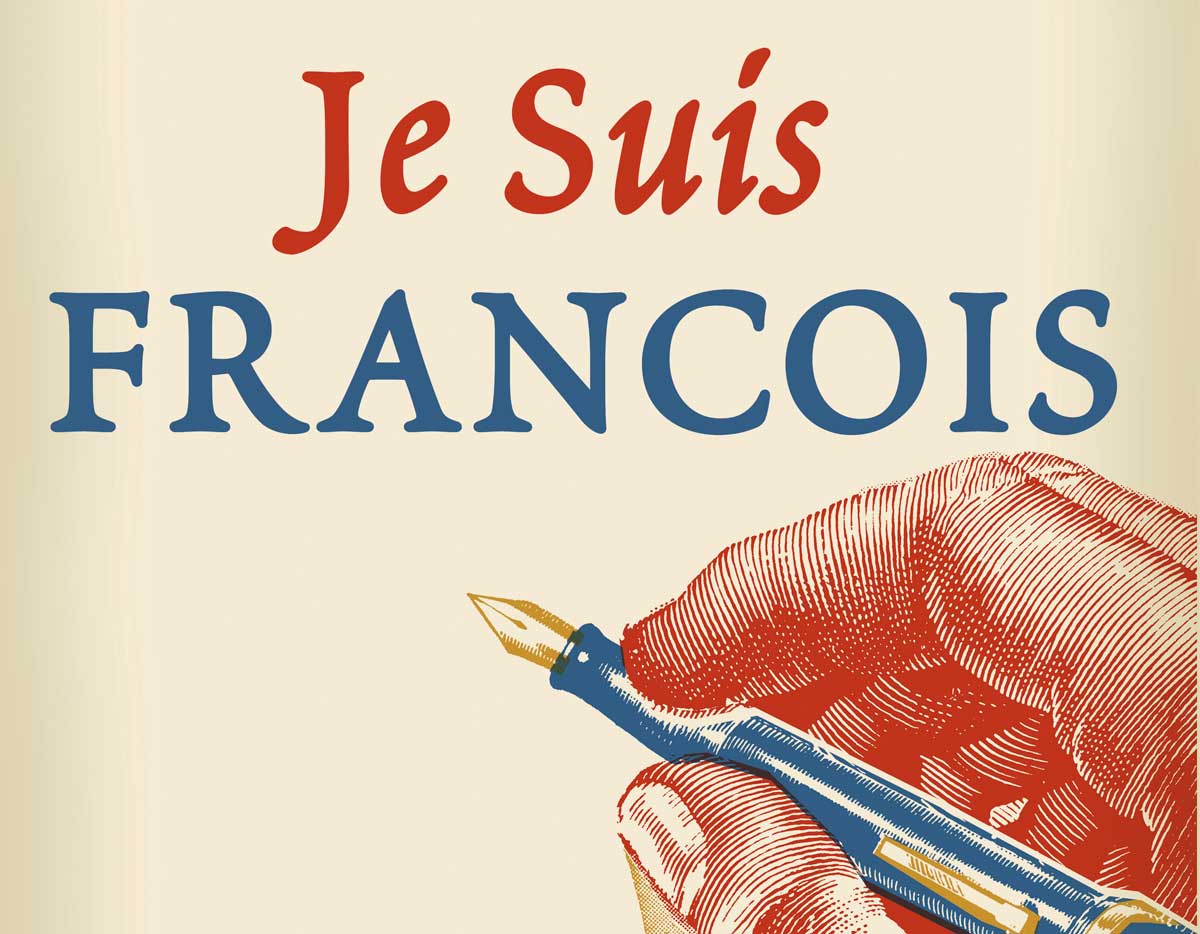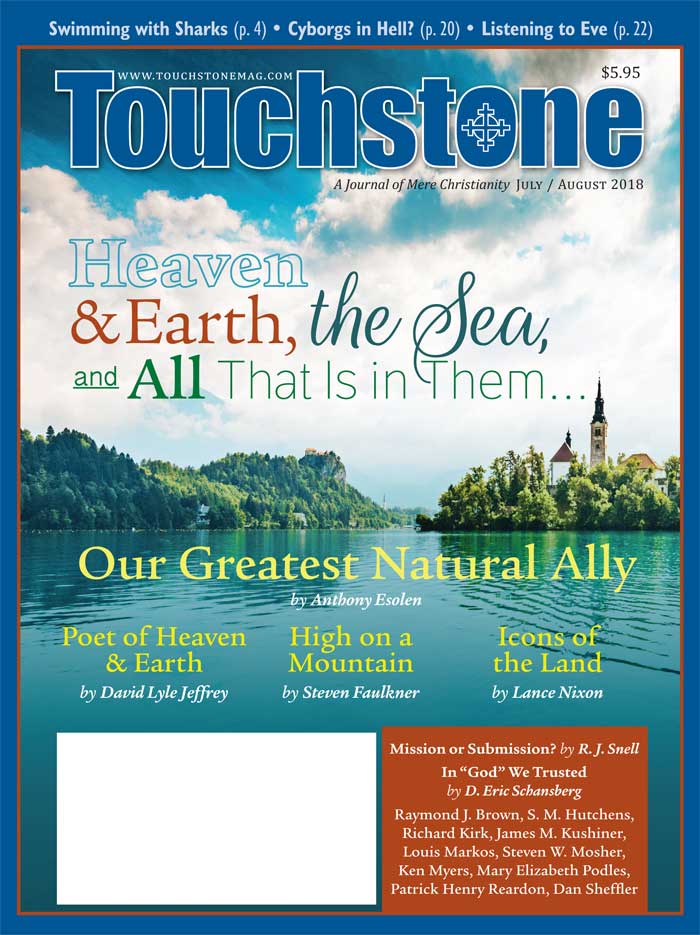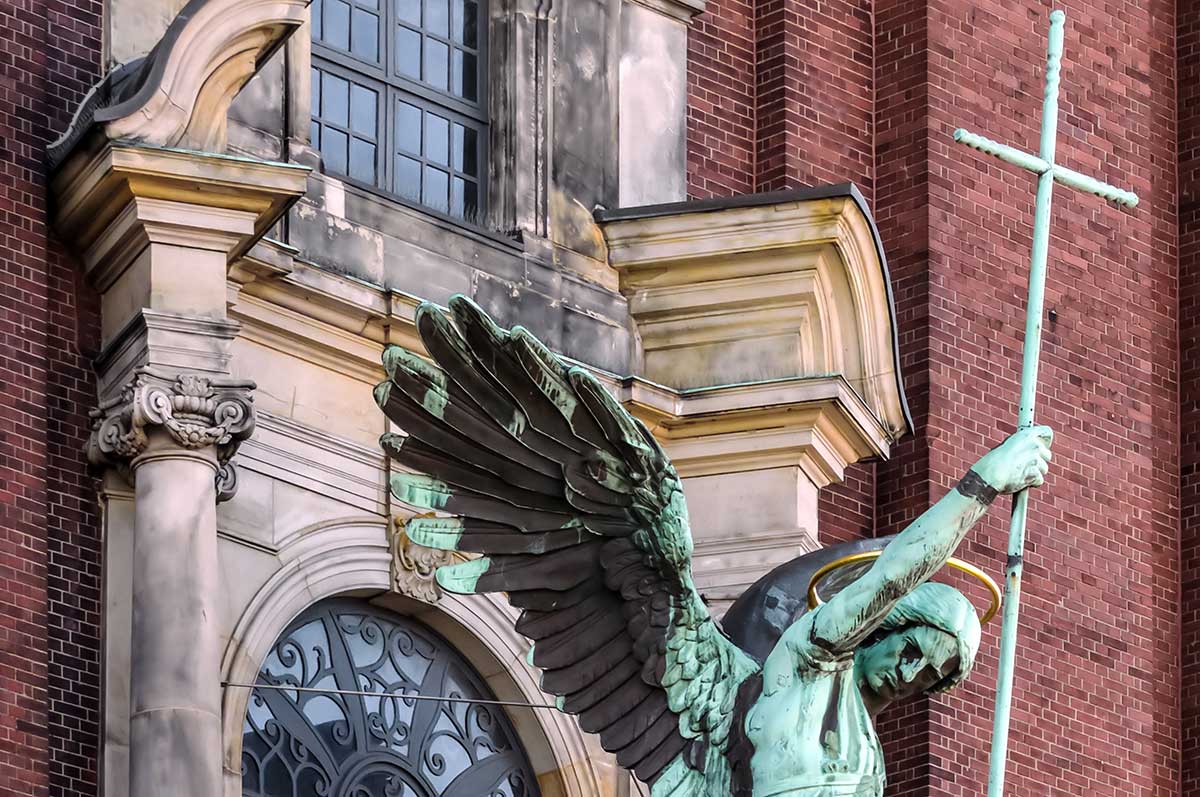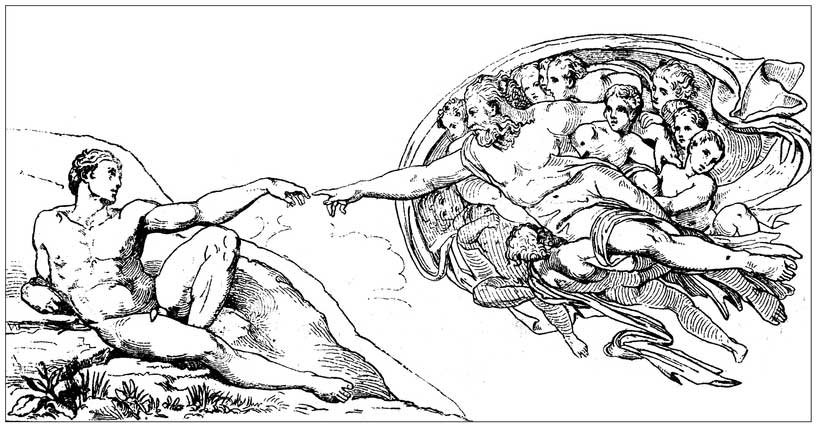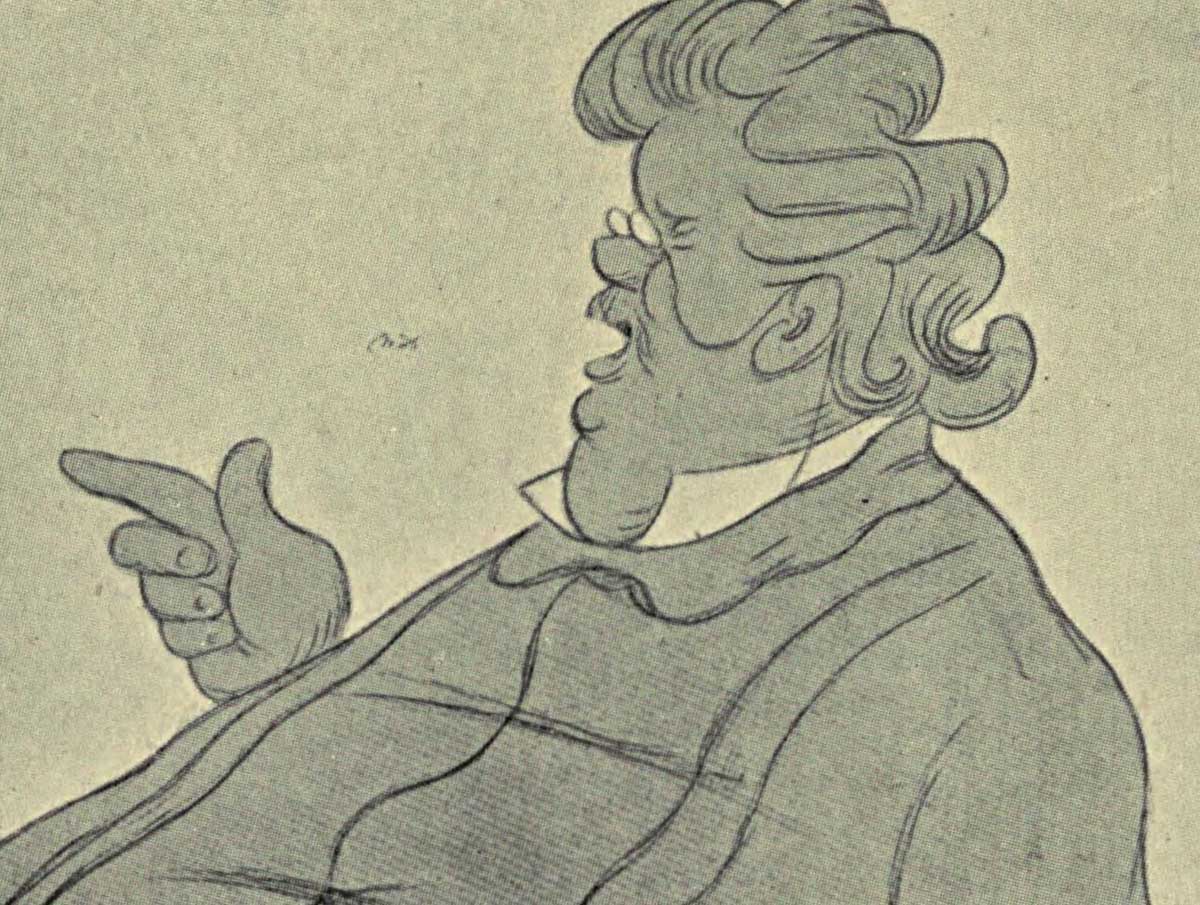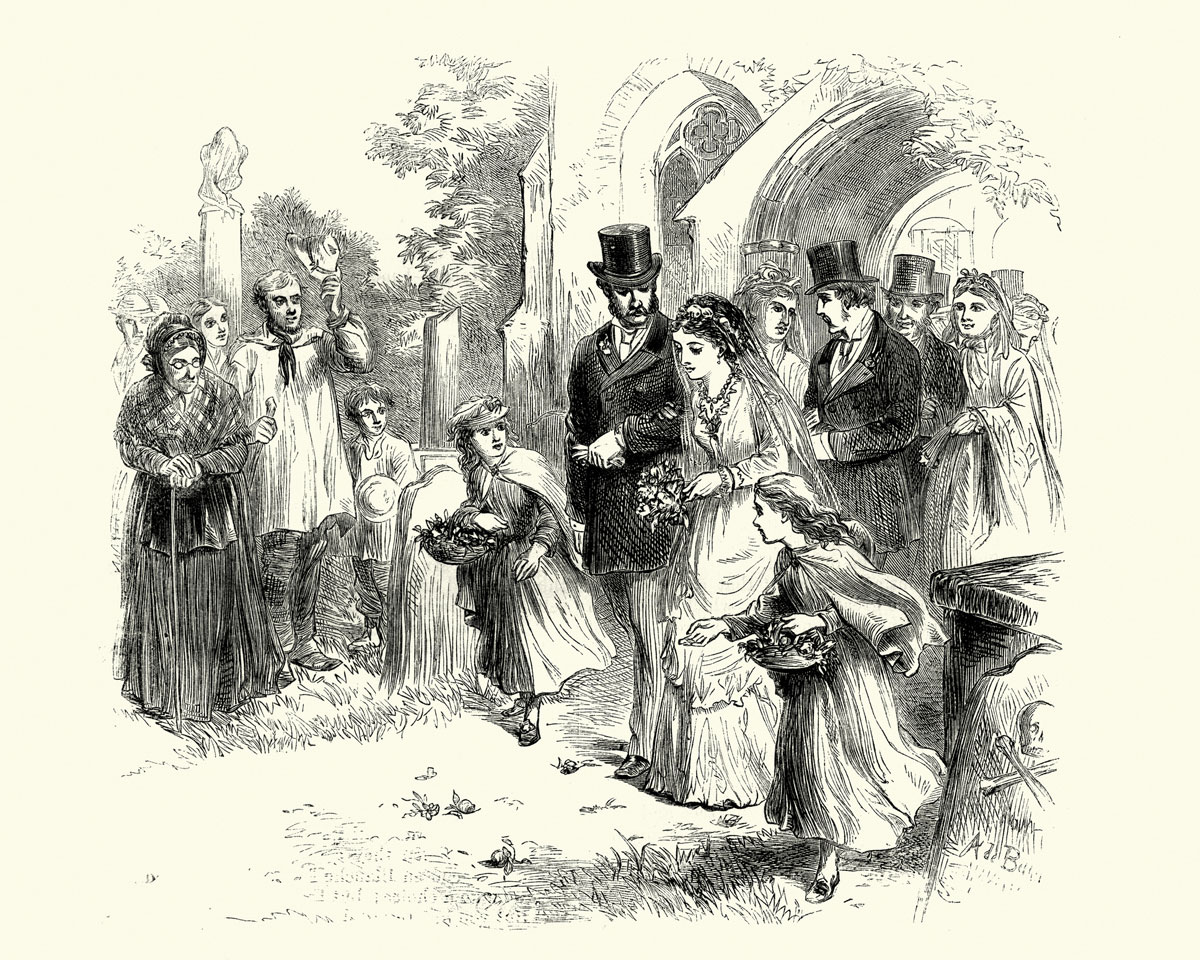Feature
Mission or Submission?
The Difficulty of Apologetics for Dead Souls in the Real World
The 2015 release of Submission by French novelist Michel Houellebecq turned out to be an event, in no small part because the book, which fictionalizes the political rise of the Muslim Brotherhood in the France of 2022, happened to be published the very day terrorists attacked the Paris offices of Charlie Hebdo. Houellebecq followed up with some incendiary comments about Islam—a perfect storm of controversy.
Few seemed to notice that Submission isn't really about Islam but rather the collapse of France, which, as the homeland of Descartes and Voltaire, Foucault and Derrida, is the symbol for both modern and postmodern thought. In Submission we find less a warning about Islam and more a funeral oration for the contemporary West.
The protagonist, a not-so-subtly named Francois—France itself—is a professor of literature, an expert on the nineteenth-century author J. K. Huysmans. Francois is not particularly accomplished; neither does he regard his profession highly, claiming,
[T]he academic study of literature leads basically nowhere, as we all know, unless you happen to be an especially gifted student, in which case it prepares you for a career teaching the academic study of literature—it is, in other words, a rather farcical system that exists solely to replicate itself and yet manages to fail more than 95 percent of the time.
"Still," he continues, "it's harmless and can even have a certain marginal value," especially for sales clerks at high-end boutiques, for whom the study of literature carries "positive connotations."
Francois identifies himself as one of those "gifted" few, with the coveted position of "senior lecturer" within his reach. Yet he "never felt the slightest vocation for teaching," bemoaning that "my fifteen years as a teacher had only confirmed that initial lack of vocation." Worse, his experience with students taught him that "the transmission of knowledge was generally impossible" and that he "didn't like young people . . . being young implied . . . a certain enthusiasm for life," a feeling Francois "never had." With respect to scholarship, the prospect, in his words, is "cold," and "exhausting," "for me nothing mattered except which . . . dinner I'd microwave . . . while I watched the political talk shows on France 2."
A similar failure of enthusiasm carries over into Francois's personal life. Relationships are ephemeral and pointless, a succession of girlfriends, hook-ups, and pornography, each passing and unsatisfying. For the now-typical progression of serial monogamy headed toward "the formation of a family," he has unreserved scorn—it is, he says, "complete idiocy." Commitment and the heritage of children have no attraction for him—they are so irrelevant that they aren't even rejected; they're simply not considered.
So also with politics. Despite the shocking rise of the Muslim Brotherhood, Francois is indifferent, even when tensions flare up into street riots and violence: while "many men take an interest in politics and war . . . these diversions never appealed to me," although he admits that the racial tensions give debates a "long-lost frisson of fascism," as if one needed some brown-shirts around to make political conversation worth noting.
Given the rising anti-Semitism, his girlfriend Myriam makes aliyah with her family, returning to Israel. As for Francois, he merely opens an account with a British bank to keep his money safe and departs for the countryside until things settle down. It's the move of a "rat abandoning ship," he admits, but "rats are intelligent animals." He heads for the southwest of France, for no particular reason, since he "didn't actually know much about France . . . I had never really visited this country of which I was, somewhat theoretically, a citizen."
A Chance Declined
While great turmoil shakes the country, Francois passes time in a hotel room, watching TV and bemoaning his slow wifi connection. At last, remembering that Huysmans, the subject of his own research, had converted to Catholicism, he heads to a medieval citadel hosting a famous Madonna—the so-called Black Virgin of Rocamadour. There he stays for almost a month, habitually visiting the Chapel of Our Lady. Of this he writes: "It was a strange statue . . . the same one who for a thousand years had inspired so many pilgrimages, before whom so many saints and kings had knelt. . . . It bore witness to a vanished universe." He spends the last day of his reveries before the Virgin, listening to readings from Charles Peguy, the great French poet of the last century: "Mother," the poem reads, "behold your sons so lost. . . . Judge them not . . . but welcome them back like the Prodigal Son. Let them return to outstretched arms."
Here, at last, is a chance for renewal and revival for Francois, for France. Before the beating heart of French Christianity, at this ancient center of faith, of passions both natural—like national and individual pride—and supernatural—for redemption, everlasting life—Francois hears a beckoning to repent and return. Like the Prodigal Son, Francois—the individual, but also France and all of Western culture—could come home. In place of pornography and microwaved dinners, anomie and hook-ups, time wasting and television, will he accept life and hope and love?
He will not. And this despite experiencing something of a mystical vision in which "it seemed the Virgin was rising from her pedestal and growing in the air. The baby Jesus seemed ready to . . . raise his right hand and the pagans and idolaters would be destroyed, and the keys to the world restored to him." Or, Francois rationalizes, "maybe I was just hungry. I'd forgotten to eat . . . and possibly what I should do was go back to my hotel and sit down to a few duck's legs." The Virgin had power, "but little by little . . . I felt her moving away from me in space and across the centuries while I sat there in my pew. . . . I got up, fully deserted by the Spirit, reduced . . . and sadly descended the stairs that led to the parking lot." He packs his car and departs.
For Francois, no institution has life. Neither politics, nor education, nor family, nor religion—not even hedonistic pleasure—brings value to life. Nothing can captivate or move or strengthen his will. He is listless, enervated, bored. Bereft of transcendence, only stimulation can satisfy, and each stimulant suffers the law of diminishing returns until nothing remains, nothing is satisfying, nothing can evoke desire.
The Human Things Reduced
Francois lives in what Charles Taylor describes as a disenchanted world. For us moderns, the cosmos is no longer full of spirits and gods, fairies and forms, but only causal forces we harness to our own needs. While allowing for unprecedented technical and economic progress, it leads also to "a wide sense of malaise at the disenchanted world, a sense of it as flat, empty," lacking meaning or purpose. For Taylor, this is true even for those moderns who retain faith—everyone, even religious believers, inhabits the "immanent frame," a way of living in a "self-sufficient immanent order" bereft of transcendence.
Such enframing makes possible a vision of what Taylor terms an "exclusive humanism," "accepting no final goals beyond human flourishing, nor any allegiances to anything else beyond this flourishing." Of course, flourishing is defined in reductive ways, disallowing "the transcendent, [or] any goals or claims which go beyond human flourishing" understood in pragmatic, utilitarian, and technological modes. There really is nothing more than the next iPhone and the returns promised for economics, medicine, health, and social well-being.
Governed as it is by modern rather than the older pre-modern accounts of meaning, the immanent frame is a domain of power and forces. The governing questions are not, as for the ancients, what or why, as in, What is the form of this being? or What is this being for? but How does this being work? So reduced, the human things are fundamentally altered. No longer is morality learning to act in conformity with nature so much as it is learning to minimize harm and maximize pleasure—a largely technical matter. The drama of constructing one's own soul, with its risk and danger, possibility and wonder, is transformed into an owner's manual of maintenance schedules and self-improvement.
For us denizens of the immanent frame, nothing could be more natural than to approach every issue as articulated within the problem/solution dialectic. Sophocles might have thought humans a terrifying wonder, but moderns, with Hobbes, tend to think of humans along the lines of pulleys and ropes, complicated systems of material causes and forces, but certainly not mysteries or wonders. Not Plato or poetry, but biochemistry and biomechanics explain us best, with no soul or self or anything sacred to remain after the chemicals and mechanics get to the bottom of it all. The properly human vanishes.
A System, Not a Man
Francois does not speak, and he does not act. He consumes pleasures and sex and entertainment, but he is not a man. He is a system, a set of functions, but he is not a who, not a person, not a self. He is no-one. In the end, he submits to Islam to have a job and to receive one wife for the care of home and another to satisfy him sexually, but he does not submit out of belief. He does not choose; he gives way.
When it comes to his new wives, Francois cannot determine how to choose since the women are covered in the burqa. His interlocutor says, "Are you sure you want to choose?" Francois responds, "I think so," but then suggests that this is an illusion: "We know that men, given the chance to choose for themselves, will all make the same choice . . ." and thus his wives are chosen for him.
The contemporary West as fictionalized by Houellebecq is an anti-culture—not simply a bad or inadequate culture but an anti-culture working against the best of human possibility. Real culture allows humans to disclose themselves in their actions and speech, and to become better selves by the very effort of acting and speaking. In the struggle to disclose, we become more than we already are.
But the immanent frame, which attempted to "save" the human things from the divine and supernatural, strips away human action and speech, replacing them with technological reductions; it jettisons human flourishing in favor of mere comfort and power. Submitting to forces and processes, the great institutions in which men and women live out and become fully authentic selves—education, family, politics, religion—are stripped, enervated, decadent, decayed, and moldering away—like our souls.
How can we reach such deadened souls? Such blind souls?
Passing By Unseen
Our Lord heals the blind man—the one thought to be blind because of his own sin or those of his parents—not merely by speaking, but with spittle, clay, and the waters of Siloam. The Lord of the cosmos, the Word through whom all that is was spoken into existence—Let it be!—healed not with a word but with matter (John 9).
In the passage, Jesus is "passing by" when he sees the blind man. One who could not see is seen by Jesus. After the miracle, the blind man both sees and worships, both body and soul restored. Nonetheless, the Pharisees do not see; they do not recognize that Christ is passing by, incarnated within their sight. Christ is even now "passing by." He is visible, although frequently not seen. We do not see him where he is, for we are blind. And not blind to the divine only, writes Josef Pieper; our ability to see in general is in decline, he claims, and so we again need to learn how to see.
Not, he insists, that our physiological sense is impaired, although perhaps it is overwhelmed by the sheer magnitude of what there is to see. Instead, "the very integrity of human existence is threatened" by passivity, a kind of existential poverty, in part caused by our "total absorption [in] and enslavement by practical goals and purposes." The blind man was born that way; we have contributed to our blindness.
It's not only that we refuse to look, Pieper suggests. Even if we decided to look, we would not see, for our power to see is impaired, and will remain so unless sight is restored. Seeing, Pieper claims, requires a basic attunement with the world, being attentive or tending to the real and the true. This is a kind of active receptivity, a reaching forth to the truth, a wonder or openness to being. Such openness to the world depends upon the human capacity for self-transcendence, the fact that we are not self-enclosed but meant for relation.
However, he continues, unless one knows how to contemplate—to see the good and true and beautiful—we will not be open, and thus our basic human nature and order will shrivel rather than flourish. Our culture, he warns, has taught us that humans are not embedded and engaged (but are consumers/producers) and that the world is not good or meaningful but just a stone. We become closed in, incapable of noting the manifest presence and goodness of God. Christ is passing by, but cannot be seen.
In a rush to accomplish things, many do not gain patience; driven by practicality, they struggle to experience the joyous wonder of things. Trained to view the world as a resource, they tend to view it as something to dominate, to use. They struggle to view the world as creation and its inhabitants as creatures—for them, Hopkins's claim that Christ plays in ten-thousand places finds little purchase, for Christ is passing by and they do not look up to see him.
Oddly, despite their rush into a utilitarian meaning of the world, they often do not know how to celebrate, how to experience festivity, or how to simply wonder, for those require a beholding of the goodness of the world, a sense that the world is a miracle, that it is creation revealing the Creator. Lacking the needed existential richness, they do not know how to keep a feast, how to have a festival. As Pieper explains:
[T]he concept of festivity is inconceivable without an element of contemplation. This does not mean exerting the argumentative intellect, but the "simple intuition" of reason; not the unrest of thought, but the mind's resting on whatever manifests itself . . . the field of vision widens, concern for success or failure of an act falls away, and the soul turns to its infinite object; it becomes aware of the illimitable horizon of reality as a whole.
Restoring Our Sight
Much of our current apologetics overlooks the decline of our ability to see. Ignoring that many in our time are blind, apologists make arguments and present evidence and say, "Look, look at this." The arguments may be sound, the evidence compelling, but many do not look because they cannot see to begin with—the blind cannot behold. And it is not only this or that individual who has lost the power to see—although perhaps this is so, for they have been trained not to see by the values, loves, and stories of their background culture.
As Luigi Giussani explains in The Religious Sense, the central problem of "human knowing does not lie in a particular intellectual capacity" but "is really a proper position of the heart, a correct attitude, a feeling in its place, a morality." We might call this poetic knowing, or love, which opens up the visibility of the world, conveying the need to increase the capacity to see prior to providing arguments at which to "look."
Pieper knows that the cause of such sight is grace, and yet he suggests that even as Christ enabled sight through spittle and clay—through the work of hands and body—so, too, matter can assist in restoring our sight, if we are ourselves active in artistic creation, producing shapes and forms for the eye to see. Christ, recall, tells the man to wash in Siloam; the man does not see until and unless he immerses himself in matter, until he participates.
In his writings, Pieper returns often to the theme of contemplation, suggesting that in this "receptive observation," this "beholding" of the real, humans find their highest intellectual activity. Yet despite this emphasis on contemplation, there is little of the disincarnate in Pieper, and no gnostic tendencies. To the contrary, he asks us to attend to matter as that in which meaning is embodied, and he exerts considerable effort to understand visual art, drama, literature, song, food, and the feast. We will never contemplate until we can see, he suggests, and seeing is directed toward, and healed by, our engagement with matter. Christ is passing by, and material culture and material reality help us to behold his presence, help us, once again, to see.
A new apologetic, or one aspect of a new apologetic, begins in the attempt to remind people of their ability to contemplate, to be open to the real. Much of this requires the rehabilitation of wonder, of delight, of amazement. All of which, quite obviously, requires the beauty of liturgy. Which ought to give many of us deep and sober pause.
R. J. Snell is currently a visiting lecturer at Princeton University, and he directs the Center on the University and Intellectual Life for the Witherspoon Institute. Prior to that appointment he was Professor of Philosophy at Eastern University and the Templeton Honors College. His most recent book is Acedia and Its Discontents: Metaphysical Boredom in an Empire of Desire (Angelico Press, 2015).
subscription options
Order
Print/Online Subscription

Get six issues (one year) of Touchstone PLUS full online access including pdf downloads for only $39.95. That's only $3.34 per month!
Order
Online Only
Subscription

Get a one-year full-access subscription to the Touchstone online archives for only $19.95. That's only $1.66 per month!
bulk subscriptions
Order Touchstone subscriptions in bulk and save $10 per sub! Each subscription includes 6 issues of Touchstone plus full online access to touchstonemag.com—including archives, videos, and pdf downloads of recent issues for only $29.95 each! Great for churches or study groups.
Transactions will be processed on a secure server.
more on apologetics from the online archives
more from the online archives
calling all readers
Please Donate
"There are magazines worth reading but few worth saving . . . Touchstone is just such a magazine."
—Alice von Hildebrand
"Here we do not concede one square millimeter of territory to falsehood, folly, contemporary sentimentality, or fashion. We speak the truth, and let God be our judge. . . . Touchstone is the one committedly Christian conservative journal."
—Anthony Esolen, Touchstone senior editor





